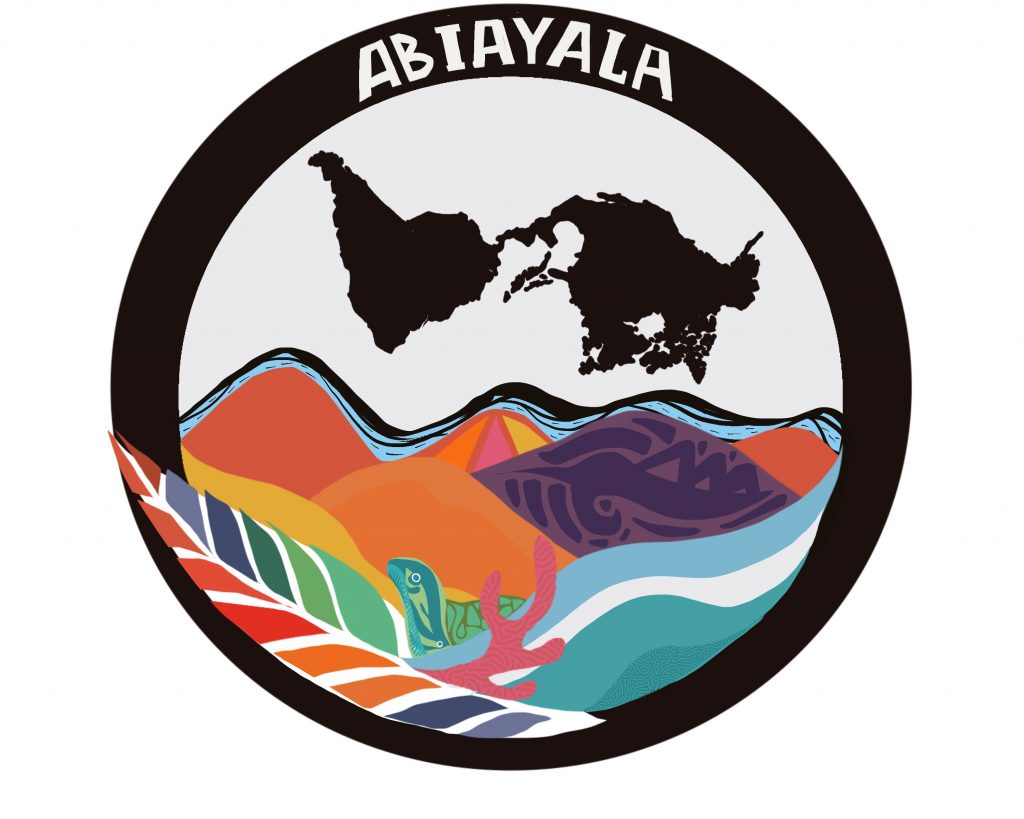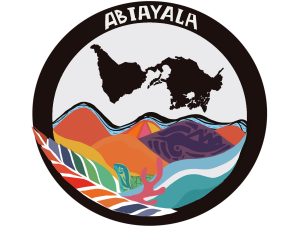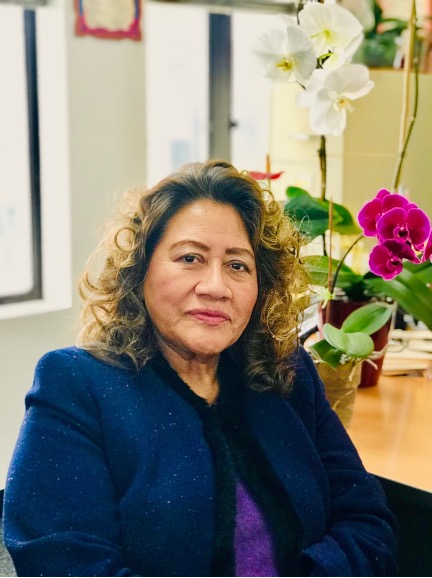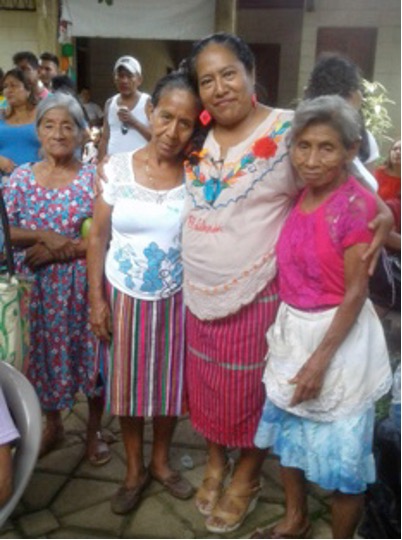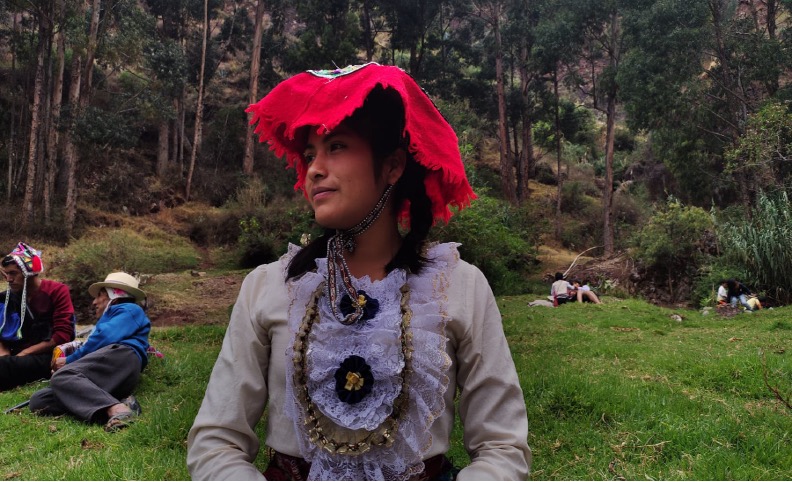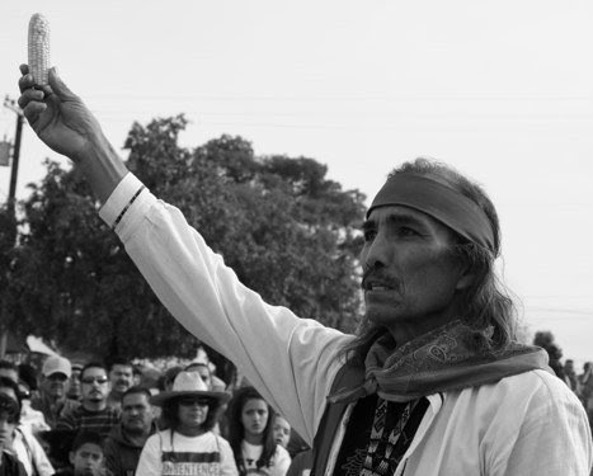Encuentro Regional de Abiayala / Abiayala Regional Gathering (Southern California)
TITULO ♦ TITLE
Encuentro Regional de Abiayala (Abiayala Regional Gathering)
♦
El Grupo de Trabajo de Abiayala presentará una serie de eventos virtuales durante tres días coorganizados por académicos, educadores, activistas, artistas y líderes comunitarios. Temas: Diálogos de Solidaridad Norte-Sur, Protectores del Agua en Abiayala y Turtle Island, Rematriando la Tierra, Abiayala en la lucha global indígena, y Flor y Canto.
The Abiayala Working Group hosted a three-day series of virtual events co-organized by scholars, educators, activists, artists, and community leaders – addressing topics such as North-South Solidarity Dialogues, Water Protectors across Abiayala and Turtle Island, Rematriating the Land, Abiayala in Global Indigenous Struggle, and Flor y Canto (poetry, music and creative practice).
♦
INSTITUCIONES Y LUGARES DE EVENTOS ♦ INSTITUTIONS & LOCATION
Eventos virtuales (All-virtual event)
The programming originated from California State University-Stanislaus (Turlock) / California State University-San Marcos
♦
Día 1: 21 de Marzo 2022 (Day 1: March 21, 2022)
♦ 2-4 pm PST: Asamblea del Grupo de Trabajo Abiayala (Abiayala Business Meeting)
For members of the NAISA Abiayala Working Group
♦ 4:30-5 pm PST: Ceremonia de Abertura (Opening Ceremony)
Presentando:
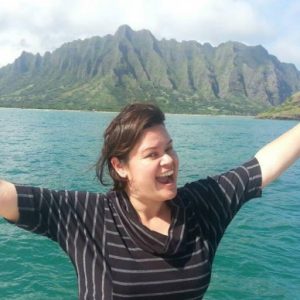 Sue Haglund, Ph.D. (Dule), University of Hawaiʻi at Mānoa
Sue Haglund, Ph.D. (Dule), University of Hawaiʻi at Mānoa
Dra. Sue Patricia Haglund, del pueblo Dule, nativa de Panamá, recibió su doctorado del Departamento de Ciencias Políticas de la Universidad de Hawái en Manoa. Su disertación, “Movimiento Poli-Estético Dule: Molas, Boxeo y Poesía,” examina la presencia estética sociopolítica y los movimientos del pueblo indígena Dule en el Panamá moderno. Sus intereses de investigación incluyen el estudio de la estética, las políticas públicas, el buen gobierno, la política indígena y los problemas sociopolíticos latinoamericanos. Su artículo, “Dule Urwed and Boxing: The Production of Dule Knowledge via Baby San Blas”, se publicó en el InTensions Journal de la Universidad de York en 2014.
Dr. Sue Patricia Haglund, Dule Indian and a native of Panama, received her doctorate from the Department of Political Science at the University of Hawaiʻi at Mānoa. Her dissertation, “Dule Poli-Aesthetic Movement: Molas, Boxing, and Poetry,” examines the sociopolitical aesthetic presence and movements of the indigenous Dule people in modern Panama. Her research interests include the study of aesthetics, public policy, good government, indigenous politics, and Latin American sociopolitical issues. Her article, “Dule Urwed and Boxing: The Production of Dule Knowledge via Baby San Blas,” was published in York University’s InTensions Journal in 2014.
♦
Kahontakwas Diane Longboat, M.Ed. (Mohawk) 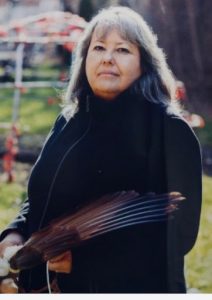
Kahontakwas Diane Longboat, M.Ed., es ciudadana de la Confederación Haudenosaunee, Nación Mohawk, Clan Tortuga. Es maestra tradicional, curandera y constructora. Diane es fundadora de la Oficina de Servicios y Programas para Estudiantes Aborígenes de la Universidad de Toronto, también llamada Casa de las Primeras Naciones, así como fundadora de Soul of the Mother, un albergue de curación a orillas del Gran Río. Diane ha estado trabajando en el Centro para la Adicción y la Salud Mental durante los últimos 9 años como CAMH Anciana y Gerente Sénior de Iniciativas Estratégicas implementando la cultura en CAMH en programas, servicios y la creación de nuevos espacios sagrados basados en la cultura. Diane trabaja con muchos líderes de hospitales a nivel local y nacional sobre la importancia del cambio organizacional para la seguridad cultural, la reconciliación y para combatir el racismo contra los indígenas en el sistema de salud.
Diane también es educadora con publicaciones sobre gobernanza de las Primeras Naciones y derecho en la educación, y ha trabajado extensamente con la Asamblea de las Primeras Naciones y los Jefes de Ontario. Diane es oradora tanto a nivel nacional como internacional y miembro de muchos Consejos de Ancianos.
Kahontakwas Diane Longboat, M.Ed., is a citizen of the Haudenosaunee Confederacy, Mohawk Nation, Turtle Clan. She is a Traditional Teacher, a Healer, and a builder. Diane is founder of The Office of Aboriginal Student Services and Programs at the University of Toronto also called First Nations House, as well as, founder of Soul of the Mother, a healing lodge on the shores of the Grand River. Diane has been working at the Centre for Addiction and Mental Health for the past 9 years as CAMH Elder and Senior Manager of Strategic Initiatives implementing culture across CAMH in programs, services, and the creation of new cultural-based sacred spaces. Diane advises many hospital leaders locally and nationally on the importance of organizational change for cultural safety, reconciliation, and anti-Indigenous racism in the healthcare system.
Diane is also an educator with publications in First Nations governance and law in education and has worked extensively with the Assembly of First Nations and the Chiefs of Ontario. Diane is a speaker both nationally and internationally and a member of many Elders Councils.
♦
María Huenuñir (Mapuche) 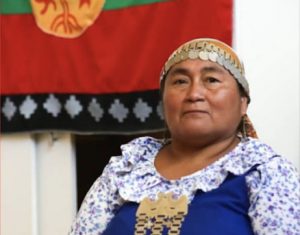
María Inés Huenuñir Antihuala es de la comunidad Champunahuel en Cayumapu, Panguipulli, Los Ríos. Es autora de Más Allá de ser Mapuche, entre otros. Enseña sobre lengua y cultura indígena y ha creado un CD de música infantil en Mapuzungun. Pertenece al Círculo Sagrado de Abuelos de todo el planeta y su poesía ha sido difundida en varios idiomas, llevando las oraciones del pueblo.
María Inés Huenuñir Antihuala is from the Champunahuel community in Cayumapu, Panguipulli, Los Ríos. She is the author of Más Allá de ser Mapuche, among others. She teaches about indigenous language and culture and has created a CD of children’s music in Mapuche. She belongs to the Sacred Circle of grandparents around the planet and her poetry has been disseminated in several languages, carrying the prayers of the people.
♦
♦ 5-6:15 pm PST: Plática 1 – Diálogos de Solidaridad del Norte-Sur (Talk 1 – North-South Solidarity Dialogues) Click on the link in the title above to see the recording of this session
Presentando:
Roberto D. Hernández (Xicano), PhD, San Diego State University 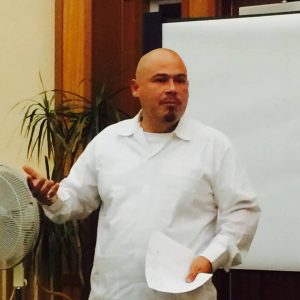
Dr. Roberto D. Hernández (Xicano) es profesor asociado de Estudios Chicanas y Chicanos en la Universidad Estatal de San Diego y actual Presidente de la Asociación Nacional de Estudios Chicanas y Chicanos (NACCS). Sinvestigación, publicaciones y docencia se centran en las intersecciones de la violencia colonial y fronteriza, la geopolítica del conocimiento y la producción cultural, la teoría política decolonial, los movimientos sociales, la indigenidad Xicano y los estudios comparativos de fronteras. Coeditó la antología Decolonizing the Westernized University: Interventions in Philosophy of Education from Within and Without (Lexington, 2016) y es autor de Coloniality of the US///Mexico Border: Power, Violence, and the Decolonial Imperative (Univ de AZ Press, 2018). Dr. Hernández también coordina varios institutos internacionales de investigación avanzada: Descolonizando el conocimiento y el poder (en Barcelona), Estudios críticos musulmanes (Granada) y Pensamiento latinoamericano decolonial y feminista (Ciudad de México). Por último, es un handyman/conserje/curador/jardinero voluntario y presidente de la Junta Directiva del histórico Centro Cultural de la Raza en territorio Kumeyaay (San Diego, California).
Dr. Roberto D. Hernández (Xicano) is an associate professor of Chicana and Chicano Studies at San Diego State University and current Chair of the National Association for Chicana and Chicano Studies (NACCS). His research, publications, and teaching focus on the intersections of colonial and border violence, the geopolitics of knowledge and cultural production, decolonial political theory, social movements, Xicano indigeneity, and comparative border studies. He co-edited the anthology Decolonizing the Westernized University: Interventions in Philosophy of Education from Within and Without (Lexington, 2016) and is the author of Coloniality of the U-S///Mexico Border: Power, Violence, and the Decolonial Imperative (Univ. of AZ Press, 2018). Dr. Hernández also coordinates several advanced international research institutes for junior scholars: Decolonizing Knowledge and Power (in Barcelona), Critical Muslim Studies (Granada), and Latin American Decolonial and Feminist Thought (Mexico City). Lastly, he is a volunteer handyman/janitor/curator/gardener and President of the Board of Trustees for the historic Centro Cultural de la Raza in unceded and occupied Kumeyaay territory (aka, San Diego, California).
♦
Maestro Guillermo Marín Ruiz (Anahuaca), Educayotl 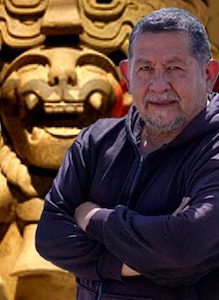
Guillermo Marín Ruiz. Coyoacán, CDMX, 1952.
Egresado de la UNAM. Maestría en Desarrollo Cultural en el Centro Latinoamericano y del Caribe para el Desarrollo Cultural-UNESCO-VENEZUELA y Doctorado Honoris Causa otorgado por la Universidad Vasconcelos de Oaxaca.
Presidente de Educayotl AC. Promotor Cultural de la Toltecáyotl. Autor de 21 libros publicados, Conferencista internacional. Director de Instituciones culturales en los estados de Oaxaca, Morelos y Guerrero. Realizador de más de 470 videos para el Canal Toltecápsulas en YouTube. Director del Portal www.toltecayotl.org con más de 31 millones de vistas. Generador de contenidos en FB Guillermo.marinruiz y ANAHUAC TOLTECAYOTL, Twitter @tigremarin1 Más de 15 años en Radio Plantón con Los Viejos Abuelos. Columnista del periódico El Imparcial de Oaxaca desde hace 40 años. Instructor en Toltecáyotl, memoria histórica e identidad cultural ancestral.
Guillermo Marín Ruiz. Coyoacán, CDMX, 1952.
Graduate of UNAM. Master’s Degree in Cultural Development at the Latin American and Caribbean Center for Cultural Development-UNESCO-VENEZUELA and Honorary Doctorate awarded by the Vasconcelos University of Oaxaca.
President of Educayotl AC. Cultural promoter of the Toltecáyotl. Author of 21 published books, International Speaker. Director of Cultural Institutions in the states of Oaxaca, Morelos, and Guerrero. Director of more than 470 videos for the Toltecápsulas Channel on YouTube. Director of the Portal www.toltecayotl.org with more than 31 million views. FB content generator Guillermo.marinruiz and ANAHUAC TOLTECAYOTL, Twitter @ tigremarin1. More than 15 years on Radio Plantón with Los Viejos Abuelos. Columnist for the newspaper El Imparcial de Oaxaca for 40 years. Instructor in Toltecáyotl, historical memory, and ancestral cultural identity.
♦
Morning Star Gali (Pit River Tribe), International Indian Treaty Council 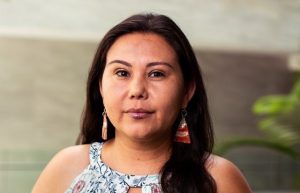
Morning Star Gali es miembro de la banda Ajumawi de la tribu Pit River ubicada en Noreste de California. Trabaja como Directora de Proyectos para Restaurar la Justicia para los Pueblos Indígenas (RJIP) y como Coordinadora Tribal y Comunitario de California para el Consejo Internacional de Tratados Indígenas, trabajando por la Soberanía y la Autodeterminación de los Pueblos Indígenas y el reconocimiento y protección de los Derechos Indígenas, Tratados, Culturas Tradicionales y Tierras Sagradas.
También es la organizadora de políticas y aguas tribales de Save California Salmon. Dedicado a aumentar la conciencia climatica de las comunidades nativas urbanas y rurales de California, Gali coordina el apoyo de los esfuerzos de organización liderados por indígenas.
La Sra. Gali continúa liderando acciones a gran escala mientras coordina las actividades culturales, espirituales y reuniones académicas y políticas en todo California. Está profundamente comprometida con la defensa de los problemas de soberanía indígena, como las mujeres indígenas desaparecidas y asesinadas (MMIW), la justicia climática, la justicia de género y la protección de los sitios sagrados en nombre de las comunidades tribales e intertribales en las que se crió. Antes de regresar a sus tierras ancestrales y trabajar para su tribu, trabajó como voluntaria y defensora de los pueblos indígenas encarcelados y anteriormente encarcelados en California, trabajando con varias organizaciones de base dirigidas por indígenas en el Área de la Bahía durante más de dos décadas.
Ella es miembro de una serie de comités asesores que abogan por la soberanía y la autodeterminación de los pueblos indígenas y los paisajes sagrados de California. Desde 2008, Morning Star ha sido locutor de radio en “Bay Native Circle” de KPFA 94.1 y es orgullosa de ser madre de cuatro hijos.
Morning Star Gali is a member of the Ajumawi band of the Pit River Tribe located in Northeastern California. She serves as Project Director for Restoring Justice for Indigenous Peoples (RJIP) and as the California Tribal and Community Liaison for the International Indian Treaty Council, working for the Sovereignty and Self Determination of Indigenous Peoples and the recognition and protection of Indigenous Rights, Treaties, Traditional Cultures, and Sacred Lands.
She’s also the Tribal water/policy organizer for Save California Salmon. Dedicated to raising awareness and visibility within the unique climate of California’s urban and rural Native communities, Gali coordinates support of Indigenous-led organizing efforts. Ms. Gali continues to lead large-scale actions while coordinating Native cultural, spiritual, scholarly, and political gatherings throughout California. She is deeply committed to advocating for Indigenous sovereignty issues such as missing and murdered Indigenous women (MMIW), climate justice, gender justice, and sacred sites protection on behalf of the tribal and inter-tribal communities in which she was raised. Prior to returning to her ancestral homelands and working for her Tribe, she served as a volunteer and advocate on behalf of incarcerated and formerly incarcerated Indigenous peoples in California, working with a number of Indigenous-led grassroots organizations in the Bay Area for over two decades.
She serves on a number of advisory committees that advocate for the sovereignty and self-determination of California’s Indigenous peoples and sacred landscapes. Since 2008 Morning Star has been a rotating host on KPFA 94.1’s “Bay Native Circle” and is the proud mother of four children.
♦
Moderated by: Gabriela Spears-Rico (Pirinda-P’urhepecha), Ph.D., University of Minnesota, Twin Cities
Dra. Gabriela Spears-Rico creció entre comunidades campesinas siguiendo la cosecha desde Washington a Oregón a  California. De origen Michoacano, es doctora en filosofía y letras. Ella recibió su licenciatura en Ciencia Política de la Universidad de Stanford y su maestría y doctorado en Estudios Étnicos de la Universidad de California en Berkeley. La Dra. Gabby, como le dicen sus estudiantes, es Profesora de Estudios Chicanos y Latinos y de Estudios Indigena-Americanos en la Universidad de Minnesota y también creadora cultural y poeta. Su poesía ha sido publicada en varias antologías, las cuales incluyen Mujeres Poetas en el País de las Nubes (Centro de Estudios de la Cultura Mixteca, México, 2008), Luces y Sombras (Fundación María del Villar, España, 2008) y Poesía Mexicana en la Frontera Norte (UNAM Editoriales, México, 2010). En el 2011, gano el primer lugar en el concurso de poesía Xochiquetzalli patrocinado por la editorial Malinali Press en San Francisco. Su poema ganador, “Flores Marchitas/Flowers of Death,” fue publicado en la antología Desde Isla Tortuga a Abya Yala: Arte y Poesía por Poetas Latinas y Nativo Americanas por la misma editorial. En el 2021, gano el concurso de Poesía de Banqueta patrocinado por la cuidad de Saint Paul. Su poesía y trabajo creativo han sido parte de exhibiciones y lecturas en Intermedia Arts, el Loft Literary Center, el Teatro Ordway, el Instituto de Arte de Minneapolis y el Palacio de Bellas Artes en la Cuidad de México. Ella es becaria de numerosas fundaciones, incluyendo la fundación Mellon y la fundación Woodrow Wilson, y recientemente fue nombrada una Profesora McKnight por la Universidad de Minnesota. La Dra. Gabby también ha sido parte del colectivo de poesía Palabristas desde que se ubico en estas ciudades gemelas en el 2013. Vive en St. Paul junto al Lago “Como” con su familia.
California. De origen Michoacano, es doctora en filosofía y letras. Ella recibió su licenciatura en Ciencia Política de la Universidad de Stanford y su maestría y doctorado en Estudios Étnicos de la Universidad de California en Berkeley. La Dra. Gabby, como le dicen sus estudiantes, es Profesora de Estudios Chicanos y Latinos y de Estudios Indigena-Americanos en la Universidad de Minnesota y también creadora cultural y poeta. Su poesía ha sido publicada en varias antologías, las cuales incluyen Mujeres Poetas en el País de las Nubes (Centro de Estudios de la Cultura Mixteca, México, 2008), Luces y Sombras (Fundación María del Villar, España, 2008) y Poesía Mexicana en la Frontera Norte (UNAM Editoriales, México, 2010). En el 2011, gano el primer lugar en el concurso de poesía Xochiquetzalli patrocinado por la editorial Malinali Press en San Francisco. Su poema ganador, “Flores Marchitas/Flowers of Death,” fue publicado en la antología Desde Isla Tortuga a Abya Yala: Arte y Poesía por Poetas Latinas y Nativo Americanas por la misma editorial. En el 2021, gano el concurso de Poesía de Banqueta patrocinado por la cuidad de Saint Paul. Su poesía y trabajo creativo han sido parte de exhibiciones y lecturas en Intermedia Arts, el Loft Literary Center, el Teatro Ordway, el Instituto de Arte de Minneapolis y el Palacio de Bellas Artes en la Cuidad de México. Ella es becaria de numerosas fundaciones, incluyendo la fundación Mellon y la fundación Woodrow Wilson, y recientemente fue nombrada una Profesora McKnight por la Universidad de Minnesota. La Dra. Gabby también ha sido parte del colectivo de poesía Palabristas desde que se ubico en estas ciudades gemelas en el 2013. Vive en St. Paul junto al Lago “Como” con su familia.
Dr. Gabriela Spears-Rico is a Pirinda Charense and P’urhepecha Indigenous feminist poet and scholar who serves as an Assistant Professor of Chicano Latino Studies and American Indian Studies at the University of Minnesota Twin Cities. Her work has been featured on Latinx Talk, Native America Calling, NDN Collective Stories, and on Indigeneity Rising. Dr. Spears-Rico is currently working on her first book, Mestizo Melancholia and the Legacy of Conquest in Michoacan, which offers an ethnographic analysis of the Days of the Dead and other Mexican cultural events to examine how ‘going native’ or ‘playing Indian’ functions in Mexico. She authored “In the Time of War and Hashtags: Rehumanizing Indigeneity in the Digital Landscape” in Indigenous Interfaces and “Transnational Indigena Mothering from Michoacan to Mni Sota Makoce” in Transnational Chicanx Perspectives on Ana Castillo (Pittsburg University Press, 2021). Her poetry has been published in various journals and anthologies including; Sing: Poetry from the Indigenous Americas (University of Arizona Press, 2011), Ethnic Studies Review (2021), Chiricú Journal: Latina/o Literatures, Arts and Cultures (2021) and will also be featured in the forthcoming Critical Latinx Indigeneities Anthology Her creative work has been featured at Intermedia Arts, the Loft Literary Center, the Ordway Theater, the DeYoung Museum, the Minneapolis Institute of the Arts and the Palace of Fine Arts in Mexico City. She is the recipient of numerous national awards, including the Mellon Mays Fellowship, the Woodrow Wilson Fellowship, and was recently named a McKnight Land-Grant Professor by the University of Minnesota. In 2021, she was awarded a fellowship with the Institute for Advanced Study at the University of Minnesota and also won Saint Paul Public Art’s Sidewalk Poetry Contest. She mothers a fierce Ojibwe-Dakota-Chicanita named Mikozi and lives on unceded Dakota land currently known as Saint Paul, Minnesota with her family.
♦
♦ 6:30-8 pm PST: Flor y Canto – Honorando los Equinoccios de la Primavera y el Otoño (Flower and Song – Honoring Spring and Fall Equinox) Click on the link in the title above to see a recording of this session
Presentando:
Mare Advertencia Lirika (Zapoteca) 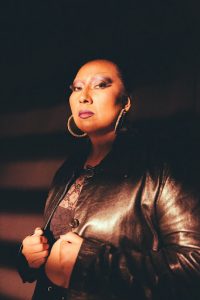
Mare Advertencia es una rapera nacida en la ciudad de Oaxaca. Es zapoteca, feminista, migrante y se dedica a la música de manera independiente desde 2003. Con 17 años de trayectoria Mare se ha presentado en toda la República Mexicana, distintos países de América y algunos del continente europeo, ha sido incluida en diferentes compilados de música feminista y en 2013 recibió el reconocimiento María Sabina, otorgado por el Instituto de la Mujer Oaxaqueña, por su labor a favor de la reivindicación de los derechos de la mujer a través de la música
Entre sus últimos proyectos se encuentran canciones como “¿Y Tú Qué Esperas?” (2020), “SE BUSCA” y “Qué mujer” (2021), canciones que destacan por rimas que cuestionan al sistema y el tratamiento de temas incómodos como el feminicidio, la desigualdad social, la reivindicación de los pueblos originarios, la segregación racial y la desaparición forzada. Recientemente colaboró con Natalia Lafourcade y Rubén Blades en una nueva versión de la canción “Tú sí sabes quererme”, que formará parte del álbum de Lafourcade: Un Canto por México Vol. II.
En 2022 lanzó SiempreViva donde renueva energía, con beats frescos y un sonido que sigue presente donde se recupera parte de las letras que Mare Advertencia lanzará en su versión original en 2016, pero ahora renovada, beats frescos y novedosos, mezclando sonidos tradicionales, con el rap y la energía del funk y un sonido que nos trae al presente la posibilidad de reinventar nuestra realidad, la forma en que se nos presenta la vida y de encontrarnos en comunidad.
Mare Advertencia is a rapper born in the city of Oaxaca. She is a Zapotec, feminist, migrant, and has been dedicated to independent music since 2003. With 17 years of experience, Mare has performed throughout Mexico, the Americas, and Europe, has been included in different compilations of feminist music and in 2013 she received the María Sabina Award, granted by the Oaxacan Women’s Institute, for her work in women’s rights through music.
Among her latest projects are songs like “Y Tú Qué Esperas?” (2020), “SE BUSCA” and “Qué mujer” (2021), songs that stand out for rhymes that question the system and confront topics such as femicide, social inequality, the vindication of native peoples, racial segregation and forced disappearance. She recently collaborated with Natalia Lafourcade and Rubén Blades on a new version of the song “Tú Sí Sabes Quererme”, which will be part of Lafourcade’s album: Un Canto por México Vol. II.
In 2022 she released SiempreViva where she revisits her 2016 work with renewed energy and fresh beats, mixing traditional sounds with rap and the energy of funk, creating a sound that opens up the possibility of reinventing our reality, rethinking the way life is presented to us, and of finding ourselves in community.
LINKS: https://linktr.ee/MareAdvertencia; https://www.instagram.com/mare.advertencia.lirika/; https://www.facebook.com/mare.advertencia
♦
Alan Pelaez Lopez (AfroIndigenous/Oaxaca) 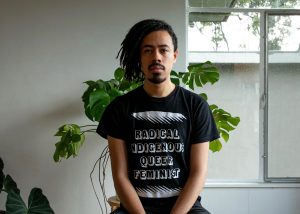
Alan Pelaez Lopez es une poeta, artista de instalación y adorno afroindígena de Oaxaca, México. Su trabajo atiende las realidades cotidianas de los migrantes indocumentados en los EUA, la condición negra/afro/cimarrona en América Latina y las unidades de parentesco íntimo que las personas trans y no binarias construyen frente a la violencia. Su poemario, Intergalactic Travels: poems from a fugitive alien (The Operating System, 2020), fue finalista del Premio Internacional del Libro Latino 2020. También escribió el cordel (chapbook) to love and mourn in the age of displacement (Nomadic Press, 2020). Alan ha trabajado como organizadore comunitarie con inmigrantes indocumentados en los Estados Unidos durante más de diez años y cree firmemente que el arte es un portal hacia el futuro, pero ¿qué futuro? Eso depende del artista y de las ideologías que le/lo/la mueven.
Puedes leer los ensayos y la escritura creativa de Alan en Teen Vogue, The Andy Warhol Museum, Everyday Feminism, Poetry, Catapult, the Georgia Review y más.
Alan Pelaez Lopez is an AfroIndigenous poet, installation and adornment artist from Oaxaca, México. Their work attends to the quotidian realities of undocumented migrants in the United States, the Black condition in Latin America, and the intimate kinship units that trans and nonbinary people build in the face of violence. Their debut visual poetry collection, Intergalactic Travels: poems from a fugitive alien (The Operating System, 2020), was a finalist for the 2020 International Latino Book Award. They are also the author of the chapbook to love and mourn in the age of displacement (Nomadic Press, 2020). While they are an artist, Alan has also been organizing with undocumented migrants in the United States for over ten years and firmly believes that art is a portal into the future, but which future? That depends on the artist and the ideologies that move them.
You can read Alan’s writing on Teen Vogue, The Andy Warhol Museum, Everyday Feminism, Poetry, Catapult, the Georgia Review, and more.
♦
Jazz Diaz (El Salvador)
Jazz Diaz (ella) es una artista visual que creció en Los Ángeles y que vive y practica en el Valle Central, en el territorio  ocupado del norte de Yokut. Su trabajo explora los enfoques interdisciplinarios del arte y la organización comunitaria. Continuando un proceso de sanación, descolonización y construcción de comunidad a través del arte y honrando la Tierra Nativa. Jazz es de ascendencia indígena, sus padres emigraron al norte durante la Guerra Civil en El Salvador. Ella hace referencia a su viaje para revitalizar sus prácticas ancestrales a través de imágenes utilizando arte tradicional y digital. Usando el arte para deconstruir la historia de la identidad política y navegar el poscolonialismo en la educación y la política.
ocupado del norte de Yokut. Su trabajo explora los enfoques interdisciplinarios del arte y la organización comunitaria. Continuando un proceso de sanación, descolonización y construcción de comunidad a través del arte y honrando la Tierra Nativa. Jazz es de ascendencia indígena, sus padres emigraron al norte durante la Guerra Civil en El Salvador. Ella hace referencia a su viaje para revitalizar sus prácticas ancestrales a través de imágenes utilizando arte tradicional y digital. Usando el arte para deconstruir la historia de la identidad política y navegar el poscolonialismo en la educación y la política.
Con una licenciatura en arte de estudio y una especialización en Estudios Étnicos de CSU Stanislaus. Jazz está buscando una certificación para enseñar arte a estudiantes de secundaria. Como artista, Jazz ha facilitado talleres de grabado y proyectos de cómics que han trabajado con grupos juveniles como Weced, 99 Rootz y Urban Habitat. Cuando era joven, Jazz se benefició del apoyo de grupos juveniles centrados en el arte en Los Ángeles y recibió becas para tomar clases de arte en instituciones de arte como Otis Art Center y un programa de arte de verano en pintura en UCLA. En su último año de escuela secundaria, fue aprendiz de MAP en MOCA, el Museo de Arte Contemporáneo y después de graduarse de la escuela secundaria e ingresar a la universidad comunitaria, trabajó como estudiante trabajadora para la Comisión de Arte de Los Ángeles.
Jazz ha tenido la oportunidad de colaborar con artistas, muralistas y grupos comunitarios del Valle Central que están trabajando con la juventud y la comunidad para resaltar la desigualdad ambiental y social. Jazz ha encontrado relaciones mutuas en la creación de arte dentro de la comunidad y continúa abogando por la financiación del arte, la autonomía del artista y salarios justos para los artistas.
Jazz Diaz (she/her) is a visual artist that grew up in Los Angeles and is a practicing artist living in the Central Valley, on occupied Northern Yokut territory. Her work explores the interdisciplinary approaches to art and community organizing. Continuing a process of healing, decolonizing, and building community through art and honoring Native Land. Jazz is of Indigenous descent, her parents immigrated north during the Civil War in El Salvador. She references her journey to revitalize her ancestral practices through imagery using traditional and digital art. Using art to deconstruct the history of identity politics that navigates postcolonialism in education and policy.
With a B.A. in studio art and a minor in Ethnic Studies from CSU Stanislaus. Jazz is pursuing a certification to teach art to high school students. As a practicing artist, Jazz has facilitated printmaking workshops and comic book projects that have worked with youth groups such as Weced, 99 Rootz, and Urban Habitat. As a youth, Jazz benefited from the support of art-centered youth groups in Los Angeles and was granted scholarships to take art classes at art institutions such as Otis, Art Center, and attend a summer art program in painting at UCLA. In her high school senior year she was a MAP apprentice at MOCA the Museum of Contemporary Art and after graduating high school and entering community college, worked as a student worker for the Los Angeles Art Commission.
Jazz has had the opportunity to collaborate with Central Valley artists, muralists, and community groups that are working with youth and the community to highlight environmental and social inequality. Jazz has found mutual relationships in creating art within the community and continues to advocate for art funding, artists’ autonomy, and fair wages as a working artist.
♦
Marcelo Garzo Montalvo (Mapuche), Ph.D., California State University-San Marcos 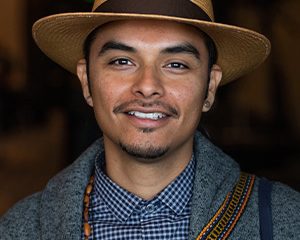
Dr. Marcelo Garzo Montalvo (el/elles) es músico, danzante y Profesor Asistente de Estudios Étnicos en la Universidad Estatal de California en San Marcos. Es emigrante de primera generación descendiente Mapuche, español y Chileno. Sus investigaciones se enfocan en estudios étnicos, latinos y negros comparativos relacionados a la danza y el performance studies. Tiene su licenciatura, maestría y doctorado en estudios comparativos étnicos de la Universidad de California en Berkeley.
Dr. Marcelo Garzo Montalvo (he/they) is a musician, dancer, and Assistant Professor of Ethnic Studies at California State University-San Marcos. He is a first-generation Chilean-Canadian-American of Mapuche and Spanish descent. They hold a B.A., M.A., and Ph.D. in Comparative Ethnic Studies from UC Berkeley. Their teaching and research focus on comparative and critical approaches to Black, Indigenous, Latinx, and Xicanx Studies and Dance and Performance Studies. He teaches and writes on abolition, decolonization, and social movements for food, healing, and ecological justice.
♦
Gabriela Spears-Rico (Pirinda-P’urhepecha), Ph.D., University of Minnesota, Twin Cities 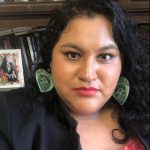
La Dra. Spears-Rico es trabajadora cultural y poeta. Su poesía ha sido publicada en varias antologías que incluyen; Sing: Poetry from the Indigenous Americas (University of Arizona Press, 2011), Love Rise Up: poemas de justicia social, protesta y esperanza (Benu Press, 2012) y también estará en la próxima antología Critical Latinx Indigeneities. A nivel local, su trabajo creativo se ha presentado en Intermedia Arts, Loft Literary Center, Ordway Theatre y Minneapolis Institute of the Arts.
Dr. Gabriela Spears-Rico is a cultural worker and poet. Her poetry has been published in various anthologies including; Sing: Poetry from the Indigenous Americas (University of Arizona Press, 2011), Love Rise Up: poems of social justice, protest, and hope (Benu Press, 2012) and will also be in the forthcoming Critical Latinx Indigeneities anthology. Locally, her creative work has been featured at Intermedia Arts, the Loft Literary Center, the Ordway Theater, and the Minneapolis Institute of the Arts.
♦
Día 2: 22 de Marzo 2022 (Day 2: March 22, 2022)
♦ 10:30-11:45 am PST: Plática 2 – Rematriando la Tierra y el Agua (Talk 2 – Rematriating Land and Water) Click on the link in the title above to see a recording of this session
Presentando:
Candi Brings Plenty (Lakota) 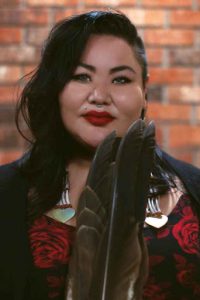
Candi Brings Plenty es una defensora de la justicia de toda la vida. Como practicante cultural Lakota y a través de su activismo espiritual, Candi trabaja para llevar su medicina a los Oyaté y aboga especialmente por el empoderamiento y la visibilidad de los guerreros Dos Espíritus para recuperar su camino de vida en el círculo sagrado. También fue la fundadora de Two Spirit Nation y dirigió el campamento Two Spirit en Standing Rock durante 11 meses durante el movimiento pacífica contra el oleoducto Dakota Access.
Como organizadora de justicia indígena para la ACLU de Dakota del Sur, Candi trabaja para desarrollar los programas de educación pública y defensa de la ACLU a través de la formación de coaliciones, el desarrollo del liderazgo, la comunicación y el cabildeo. Ella lidera los esfuerzos en torno al trabajo de visibilidad NoKXL, NoDAPL, MMIW y Two Spirit de la ACLU. También es la organizadora de todas las campañas de West River ACLU en Dakota del Sur.
Candi tiene una licenciatura en estudios de nativos americanos con énfasis en leyes y tratados tribales. Completó su certificado de posgrado en gestión pública y organización sin fines de lucro y obtuvo su maestría en administración pública de la Universidad Estatal de Portland en Portland, Oregón. Candi es miembro de la tribu Oglala Lakota Sioux y descendiente directa de Crazy Horse’s Band. Creció en los Black Hills y en la reserva de Pine Ridge, está profundamente arraigada en su cultura, espiritualidad e idioma Lakota.
Candi Brings Plenty is a lifelong advocate for justice. As a Lakota cultural practitioner and through her spiritual activism, Candi works to bring her medicine to the Oyaté and advocates especially for the empowerment and visibility of Two Spirit warriors to reclaim their walk of life in the sacred circle. She was also the founder of the Two Spirit Nation and led the Two Spirit encampment at Standing Rock for 11 months during the peaceful prayer movement against the Dakota Access Pipeline.
As the indigenous justice organizer for the ACLU of South Dakota, Candi works to build the ACLU’s public education and advocacy programs through coalition-building, leadership development, communication, and lobbying. She leads the efforts surrounding the ACLU’s NoKXL, NoDAPL, MMIW, and Two Spirit visibility work. She is also the organizer for all West River ACLU campaigns in South Dakota.
Candi has a bachelor’s degree in Native American studies with an emphasis on tribal laws and treaties. She completed her graduate certificate in public and nonprofit management and pursued her master’s degree in public administration from Portland State University in Portland, Ore. Candi is an Oglala Lakota Sioux tribal member and a direct descendent of Crazy Horse’s Band. She grew up in the Black Hills and on the Pine Ridge Reservation, she is deeply rooted in her Lakota culture, spirituality, and language.
♦
Inés Ixierda (Bolivia), Sogorea Te Land Trust 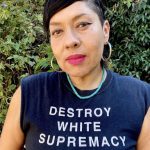
Inés Ixierda es una artista interdisciplinaria, creadora de medios y organizadora queer mestizx discapacitada bolivano-estadounidense en Oakland, California, territorio Ohlone. Ella coordina los proyectos creativos en el Sogorea Te Land Trust dirigido por mujeres indígenas urbanas, crea medios, recursos de educación política, eventos y pasa tiempo en la tierra con plantas medicinales.
Inés Ixierda is a queer disabled Mestizx Bolivian-American interdisciplinary artist, media maker, and organizer in Oakland, California, unceded Ohlone Land. She coordinates the creative projects at the urban Indigenous women-led Sogorea Te Land Trust, creates media, political education resources, events, and spends time on the land with plant medicines.
♦
Moderated by: Dr. Cueponcaxochitl Moreno Sandoval (Caxcan, Xicanx, Izkalohteka), California State University, Stanislaus
Mi nombre es Cueponcaxochitl D. Moreno Sandoval. Soy de ascendencia Caxcana, Xicanx e Izkalohteka. Conmigo 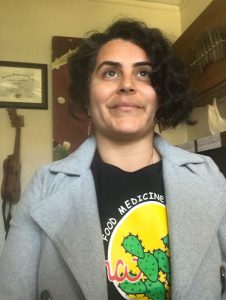 en su vientre, mi madre cruzó la frontera entre Estados Unidos y México en el maletero de un auto para unirse con mi familia en los Estados Unidos. Este comienzo de vida marcó el tono de mi viaje escolar como erudita artivista. Declaré una especialización en matemáticas durante mi primer año en Pomona College, pero cuando me di cuenta de que era una de las únicas mujeres en mi primera clase de matemáticas, y la mayoría aún, de ascendencia Mexicana, cambié mi área de enfoque a la historia y la política de educación para los pueblos Xicanx. En el proceso, nutrí mis propias identidades ancestrales y volví a despertar mi voz frente al colonialismo. Comencé a aprender más sobre mi herencia a través de la perspectiva de mis antepasados y mi familia, de ahí surgen mis intereses de investigación.
en su vientre, mi madre cruzó la frontera entre Estados Unidos y México en el maletero de un auto para unirse con mi familia en los Estados Unidos. Este comienzo de vida marcó el tono de mi viaje escolar como erudita artivista. Declaré una especialización en matemáticas durante mi primer año en Pomona College, pero cuando me di cuenta de que era una de las únicas mujeres en mi primera clase de matemáticas, y la mayoría aún, de ascendencia Mexicana, cambié mi área de enfoque a la historia y la política de educación para los pueblos Xicanx. En el proceso, nutrí mis propias identidades ancestrales y volví a despertar mi voz frente al colonialismo. Comencé a aprender más sobre mi herencia a través de la perspectiva de mis antepasados y mi familia, de ahí surgen mis intereses de investigación.
Como profesora asistente de Estudios Indígenas Nativos Americanos y Mexicanos en Stanislaus State, animo a los estudiantes a que se inclinen hacia la curiosidad sobre sí mismos y su relación con el mundo como agentes de cambio. Recibí el Premio del Liderazgo Innovador de la Facultad de la Universidad Estatal de California en 2020. Investigo cómo los sistemas de conocimiento ancestrales pueden informar / ser informados por tres áreas: 1) Lengua náhuatl y prácticas culturales, 2) Cultura son jarocho / fandango, y 3) cómo es aplicado a la educación de ciencias de computación. También me desempeñé como presidente de programa para el Grupo de Interés Especial de los Pueblos Indígenas de las Américas en American Education Research Association. Mi publicación más reciente es Cihuātocameh (Mujeres arañas) tejiendo veinte años de trabajo de justicia transformadora en la universidad (2021) en Educational Studies. Una parte de lo que informa mi jornada es mi amor por caminar descalza sobre la tierra, la jardinería y hacer arte con mi hijo, pareja, familia y comunidad.
My name is Cueponcaxochitl D. Moreno Sandoval. As an assistant professor of Native American and Mexican Indigenous Studies at Stanislaus State, I encourage students to lean into curiosity about themselves and their relationship with the world as agents of change. I research how ancestral knowledge systems can inform/be informed by three areas: 1) Nahuatl language and cultural practices, 2) son jarocho/fandango culture, and 3) computer science education. I served as a program chair for the Indigenous Peoples of the Americas Special Interest Group at the American Education Research Association, and I was awarded the Faculty Innovative Leadership Award by the California State University in 2020. My most recent publication is Cihuātocameh (Spiderwomen) weaving twenty years of transformative justice work in higher education (2021) in Educational Studies. A part of what informs my journey is my love for walking barefoot on the earth, gardening, and making music and art with family and community.
♦
♦ 12-1:30 pm PST: Plática 3 – Plática Comunitaria y Clausura (Talk 3 – Community Gathering and Closing)
Presentando:
Shannon Speed (Chickasaw), Ph.D., UCLA 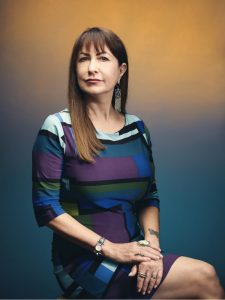
Dra. Shannon Speed es una ciudadana tribal de la Nación Chickasaw de Oklahoma. Es directora del Centro de Estudios Indígenas Americanos (AISC) y profesora de Estudios de Género y Antropología en UCLA. Dra. Speed ha trabajado durante las últimas dos décadas en México y Estados Unidos en temas de autonomía indígena, soberanía, género, neoliberalismo, violencia, migración, justicia social e investigación activista. Ha publicado numerosos artículos en revistas y capítulos de libros en inglés y español, y ha publicado siete libros y volúmenes editados, incluido su más reciente, Historias encarceladas: Mujeres indígenas migrantes y violencia en el Estado capitalista colonizador, que ganó el Premio al Mejor Libro Posterior de la Asociación de Estudios Indígenas y Nativos Americanos en 2019 y un premio de Título Académico Sobresaliente de CHOICE en 2020. Tiene un nuevo volumen coeditado titulado, Estados elevados de injusticia: Investigación activista sobre mujeres indígenas y violencia (University of Arizona Press). Dra. Speed actualmente se desempeña como ex presidente de la Asociación de Estudios Indígenas y Nativos Americanos (NAISA). En los últimos años, la nación Chickasaw le otorgó el premio Chickasaw Dynamic Woman of the Year y el premio Lifetime Achievement Award de la State Bar of Texas Indian Law Section.
Dr. Shannon Speed is a tribal citizen of the Chickasaw Nation of Oklahoma. She is Director of the American Indian Studies Center (AISC) and Professor of Gender Studies and Anthropology at UCLA. Dr. Speed has worked for the last two decades in Mexico and in the United States on issues of indigenous autonomy, sovereignty, gender, neoliberalism, violence, migration, social justice, and activist research. She has published numerous journal articles and book chapters in English and Spanish and has published seven books and edited volumes, including her most recent, Incarcerated Stories: Indigenous Women Migrants and Violence in the Settler Capitalist State, which won the Best Subsequent Book Award of the Native American and Indigenous Studies Association in 2019 and a CHOICE Outstanding Academic Title award in 2020. She has a new co-edited volume entitled, Heightened States of Injustice: Activist Research on Indigenous Women and Violence (University of Arizona Press). Dr. Speed currently serves as the Past President of the Native American and Indigenous Studies Association (NAISA). In recent years, she was awarded the Chickasaw Dynamic Woman of the Year Award by the Chickasaw Nation, and the Lifetime Achievement Award from the State Bar of Texas Indian Law Section.
♦
Día 3: 14 de Abril 2022 (Day 3: April 14, 2022)
♦ 12:30-1:45 pm PST: Plática 4 – Protectores del Agua (Talk 4 – Water Protectors) Click on the link in the title to see a recording of this session
Rights of Remembrance: Abya Yala and the Territorial Integrity of Mother Earth
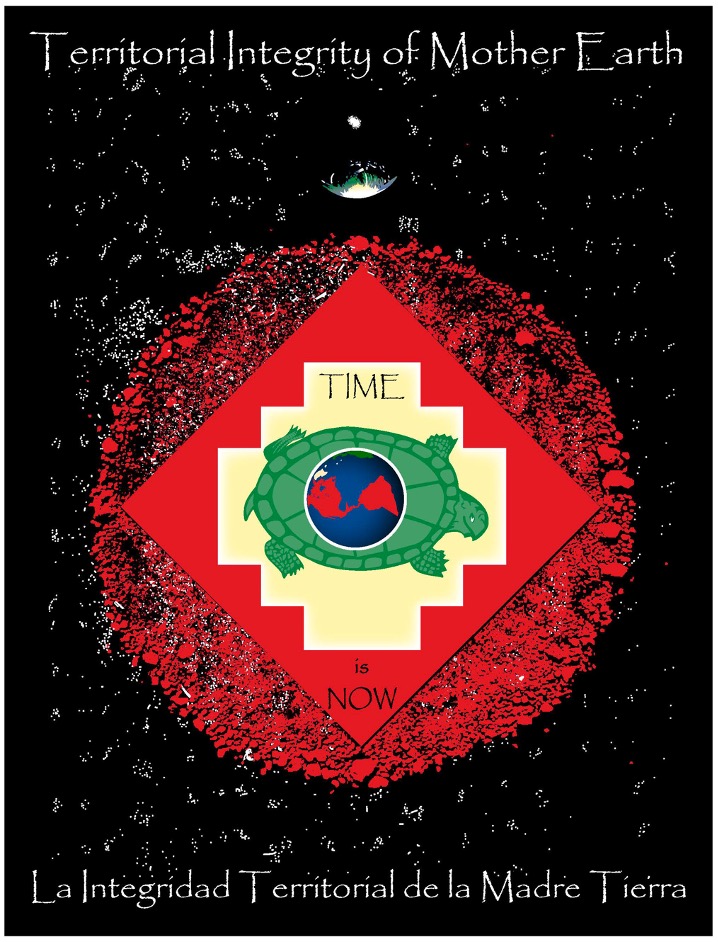
Sin memoria, el pueblo no hace historia.
Presentando:
Mario Luna Romero (Yaqui) [Sonora, Mexico]
Nací en Vicam Sonora México. Estudie técnico agrícola, Promotor Cultural y soy traductor e intérprete de lengua Yaqui al Español. He desempeñado cargos como secretario tradicional en el gobierno Yaqui de Vicam; también soy vocero de la defensa del agua y el territorio de la Tribu Yaqui desde el 2010.
Fui preso político por defender el Río Yaqui desde septiembre de 2014 a octubre de 2015. Actualmente también dirijo Námakasia Radio, la radio comunitaria de la Tribu y soy parte de la coordinación colegiada de SEWA TOMTEME la escuela Autónoma de la Tribu Yaqui….entre muchas otras comisiones que me han asignado en mi pueblo.
I was born in Vicam Sonora Mexico. I studied to be an agricultural technician and Cultural Promoter. I am a translator and interpreter from the Yaqui language to Spanish. I have assumed roles as traditional secretary in the Yaqui government of Vicam; also I am a spokesperson for the defense of the water and the territory of the Yaqui Tribe since 2010.
I was a political prisoner for defending the Yaqui River from September 2014 to October 2015. Currently, I also direct Námakasia Radio, the radio community of the Tribe and I am part of the collegiate coordination of SEWA TOMTEME the Autonomous School of the Yaqui Tribe….among many others commissions that have been assigned to me in my town.
♦
Haydee Sanchez Giron (Nahua Pipil), Cuzcátlan [El Salvador]
Autoridad Ancestral del Consejo Nacional de los Pueblos Indígenas en el Diáspora, (CONPID) Presidente de la junta directiva del Centro Cultural Techantit desde su fundación en 2009 y actualmente Directora Ejecutiva. Miembro fundadora de la Comisión Continental Abya Yala, con un mandato de desmantelar la Doctrina del Descubrimiento con el Centro Cultural Techantit, Maya Vision y TONATIERRA. Asesora de organizaciones Indígenas dedicadas a la defensa de los derechos humanos, derechos Indígenas, y la integridad territorial de la Madre Tierra. Miembra asociada y asesora del Consejo Nahuat Pipil de Nahuizalco y otros grupos Indígenas. Experiencia en gestión de desarrollo comunitario Indígena, líder de proyectos y comunidad. Consultoría al sector privado y entidades sin fines de lucro. Copresidente del Caucus Global de Pueblos Indígenas en la ONU en 2012. Investigación y compilación de violaciones de derechos humanos contra mujeres Indígenas. Trabajó con comunidades Indígenas y migrantes desde 1983. Asociada Directora de Jóvenes, Inc, una organización dedicada a empoderar a jóvenes. Desde 2007 a la fecha, gerente general en una oficina legal.
Ancestral Authority of the National Council of Indigenous Peoples in the Diaspora, (CONPID) President of the board of directors of Centro Cultural Techantit since its foundation in 2009 and currently Executive Director. Founding member of the Abya Yala Continental Commission, with a mandate to dismantle the Doctrine of Discovery with Centro Cultural Techantit, Maya Vision and TONATIERRA. Advisor for indigenous organizations dedicated to the defense of human rights, indigenous rights, and the territorial integrity of mother earth. Associate member and advisor of the Nahuat Pipil Council of Nahuizalco and other indigenous groups. Experience in administration of indigenous community development projects and community leader. Consulting to non-profit and private sector entities. Co-president of the Global Caucus of Indigenous Peoples at the UN in 2012. Investigation and compilation of human rights abuse against indigenous women. Worked with indigenous and migrant communities since 1983. Associate Director of Jovenes, Inc, an organization dedicated to empowering young people. From 2007 to the present, general manager in a legal office.
♦
Margot Perez De Cortez (Nahuat Pipil), Cuzcátlan [El Salvador]
Nació en Sonsonate, El Salvador. Guía Espiritual y Artesana de Raíces Originarias y Organizadora de Grupos Indígenas. Madre de tres hijos, dos hombres y una mujer. Defensora de los derechos humanos y de los pueblos indígenas Defensora del Agua y del Rio Sensunapan.
Fundadora de: Consejo de Pueblos Originarios Nahuat Pipil de Nahuizalco Red Del Jaguar Sonriente. Creación de la Mesa Nacional de Desarrollo Artesanal. Creadora de Grupos de mujeres que sufren violencia ( grupos de autoayuda). Lucha en la defensa de la no privatización del agua y la no creación de más Represas. Participó en la creación de la Ordenanza Municipal de los derechos de los pueblos indígenas de Nahuizalco.
Participó en la creación de la ley de Fomento Protección y Desarrollo al sector Artesanal a nivel Nacional. Participó en la creación de la Política Pública para los pueblos indígenas a nivel nacional. Participó en la creación de la Política Pública para los Adultos Mayores. Impulsora de los derechos de la Juventud Indígena.
Representante y miembro del comité consultivo de FANTEL (2015- 2019).Asesora en el Tema Indígena en la ONU Mujeres (2015-2019). Copresidenta del Foro Permanente para las cuestiones indígenas (2018). Representaciones Internacionales en Temas Indígenas (2012-2020 Costa Rica, Colombia, Guatemala, etc.)
She was born in Sonsonate, El Salvador. Spiritual Guide and Artisan of Native Roots and Organizer of Indigenous Groups. Mother of three children, two men and one woman. Defender of human rights and Indigenous Peoples. Defender of Water and the Sensunapan River. Founder of: Council of Original Nahuat Pipil Peoples of Nahuizalco Red Jaguar Smiling. Creation of the National Development Board for Cultural Arts. Creator of groups of women who suffer violence (groups of self help). Fight in defense of the non-privatization of water and the non-creation of more dams. Participated in the creation of the Municipal Ordinance of the rights of the Indigenous towns of Nahuizalco.
Margot participated in the creation of the Promotion, Protection and Law Development by Cultural Arts sector nationwide. Participated in the creation of the Public Policy for Indigenous Peoples at the national level. Participated in the creation of the Public Policy for the Elderly. Promoter of the rights of the Indigenous youth.
Representative and member of the advisory committee of FANTEL (2015-2019). Advisor on Indigenous Issues at UN for Women (2015-2019). Co-chair of the Permanent Forum on Indigenous Issues (2018). International Representations on Indigenous Issues (2012-2020 Costa Rica, Colombia, Guatemala, etc.).
♦
Lised Sullani Soria (Quechua), Tawatinsuyo [Peru]
Lised es una joven mujer Quechua del sector Mandor distrito de Maranura, Quillabamba Cuzco, Perú. Mandor es una catarata de agua de tres caídas de belleza excepcional … la sacralidad y reverencia que los nativos andinos reconocemos en estos lugares será el tema que Lised compartirá desde el sentipensar de la gente que mantiene el respeto y amor a nuestra madre agua. Lised es miembro de nuestra comunidad Ñawpa Ñan y dirige el programa de aprendizaje de jóvenes en el área audiovisual del proyecto de filmación documental Unlocking Silent Histories.
Lised is a young Quechua woman from the Mandor sector of the Maranura district, Quillabamba Cuzco, Peru. Mandor is a three-fall waterfall of exceptional beauty … the sacredness and reverence that Andean natives recognize in these places will be the theme that Lised will share from the feeling and thinking of the people who respect and love our Mother Water. Lised is a member of our Ñawpa Ñan community and runs the youth learning program in the audiovisual area of the documentary film, Unlocking Silent Histories.
♦

Lucia Cana Santacruz (Quechua), Tawatinsuyo [Pisaq, Peru]
Lucia Cana es una comunera de la comunidad indígena de Amaru del distrito de Pisac en Cuzco, Perú. Ella pertenece a la nación Quechua de los Andes centrales de sur América. Lucia es una experta tejedora en telar tradicional en sus tejidos de exquisita belleza y con una de las técnicas más complejas del planeta, preserva los códigos milenarios con que el ser humano mantiene esa íntima relación con la naturaleza…. relación de respeto y amor a todo lo que existe. El agua es una de las grandes madres que llenan esta simbiosis entre los seres hijos de Pachamama. Lucía compartirá su práctica y su mirada desde la apreciación quechua del agua. Lucia es maestra de tejido tradicional del Colegio Andino Kusi Kawsay y participa activamente en los eventos culturales Ñawpa Ñan miembros de la red Abya Yala.
Lucia Cana is a community member of the Indigenous community of Amaru del Pisac district in Cuzco, Peru. She belongs to the Quechua Nation of Central Andes of South America. Lucia is an expert loom weaver, traditional in its fabrics of exquisite beauty and with one of the most complex techniques on the planet. Lucia preserves the ancient codes that being human maintains an intimate relationship with nature… relationship of respect and love to everything that exists. Water is one of the great mothers that fill this symbiosis between the beings who are children of Pachamama. Lucy will share his practice and her view from the Quechua appreciation of water. Lucia is a traditional weaving teacher at Colegio Andino Kusi Kawsay and actively participates in cultural events by the Ñawpa Ñan members of the Abya Yala network.
♦

Natalie Segovia (Quechua), Water Protector Legal Collective [Albuquerque, New Mexico]
Natali Segovia es abogada internacional de derechos humanos descendencia Quechua, quien actualmente se desempeña como Directora Legal de Water Protector Legal Collective (WPLC), una organización sin fines de lucro que surgió de #NoDAPL resistencia en Standing Rock que brinda apoyo legal y defensa para Pueblos Indígenas y Naciones Originarias, la Tierra y movimientos de la justicia climática. El trabajo de Natali se centra en la protección de la Tierra y violaciones de derechos humanos como resultado de la industria extractiva y proyectos de desarrollo. Durante los últimos 15 años, ha realizado un amplio trabajo internacional que aborda con mayor frecuencia el impacto de las industrias extractivas en los Pueblos Indígenas a través del desplazamiento forzado, profanación de tierras sagradas y contaminación de los territorios tradicionales. Natali tiene una licenciatura en derecho de la Universidad Estatal de Arizona y doble titulación en Política Internacional y Estudios Latinoamericanos de la Universidad de Columbia.
Natali Segovia is an international human rights attorney of Quechua descent, who currently serves as the Legal Director of the Water Protector Legal Collective (WPLC), a nonprofit that grew out of the #NoDAPL resistance at Standing Rock that provides legal support and advocacy for Indigenous Peoples and Original Nations, the Earth, and climate justice movements. Natali’s work focuses on the protection of the Earth and human rights violations as a result of extractive industry and mass development projects. Over the past 15 years, she has done extensive international work most often addressing the impact of extractive industries on Indigenous Peoples through forced displacement, desecration of sacred lands, and contamination of traditional homelands. Natali holds a law degree from Arizona State University and dual degrees in International Politics and Latin American Studies from Columbia University.
♦
Tupac Enrique Acosta (Izkaloteka), Huehuetlapallan [Phoenix, Arizona]
Coordinador general y fundador de TONATIERRA, una Asociación de Pueblos Indígenas organización comunitaria ubicada en los territorios O’odham Jeved de Huehuetlapallan [Phoenix, Arizona] que sirve como Secretaría de la Comisión Continental Abya Yala. Custodio del Nahuacalli, Embajada de Pueblos Indígenas.
General coordinator and founder of TONATIERRA, an Indigenous Peoples community-based organization located in the O’odham Jeved territories of Huehuetlapallan [Phoenix, Arizona] that serves as Secretariat of the Continental Commission Abya Yala. Custodian of the Nahuacalli, Embassy of Indigenous Peoples.
♦
The human heart is the eventuality of our being.
TONATIERRA
♦ ♦ ♦
CONTACTOS ♦ CONTACTS
Grupo de Trabajo de Abiayala (Abiayala Working Group)
Coordinator: Cueponcaxochitl Moreno Sandoval, Secretary: Marcelo Garzo Montalvo
